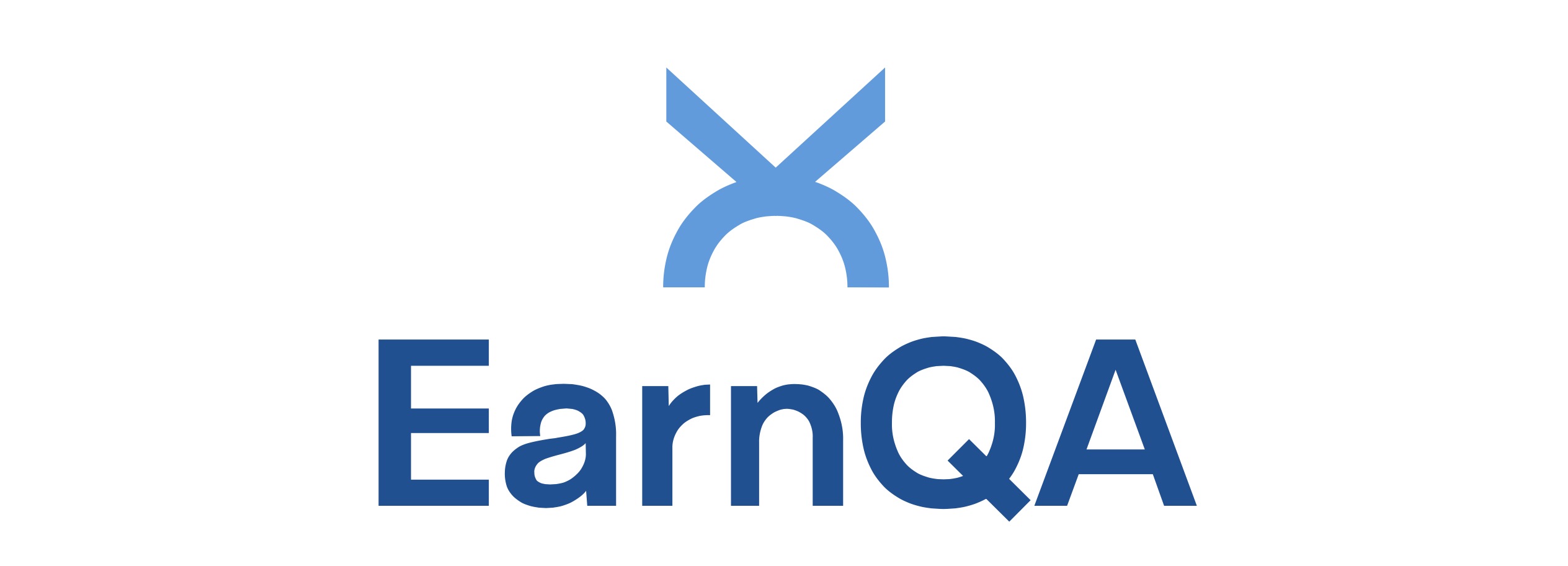Resources and Training
Emerging Trends in SQA: What's New for 2024
Stay ahead of the game with the latest trends in SQA for 2024! Learn about the emerging trends and updates that will shape the future of software quality assurance.

Are the upcoming trends in software quality assurance (SQA) for 2024 influencing the future landscape of software quality assurance?
Translated: Are the upcoming trends in software quality assurance (SQA) for 2024 shaping the future of software quality assurance in the United States?
As we navigate through the rapidly evolving landscape of technology and development, it becomes increasingly vital to stay abreast of the latest trends and advancements in SQA.
From the integration of AI and machine learning to the adoption of shift-left testing methodologies, the upcoming trends in SQA are poised to revolutionize the way we approach software quality assurance.
But what exactly do these trends entail, and how will they impact the industry?
Let's explore the significant shifts and innovations that are set to define SQA in 2024 and beyond.
Key Takeaways
- Increased integration of AI and machine learning in SQA
- Growing importance of automation testing for improved efficiency and accuracy
- Focus on security testing to ensure resilience and integrity
- Shift-left testing approach to identify defects early and enhance software quality
Shift-Left Testing
Shift-Left Testing revolutionizes software quality assurance by integrating testing activities early in the development lifecycle, fostering collaboration between developers and testers for higher quality outcomes.
This emerging trend in software QA emphasizes the importance of shifting testing techniques and processes to the left, meaning testing earlier in the development cycle. With technological advancements, especially in cloud-based testing, QA teams can now leverage tools and platforms to conduct testing activities much earlier in the software development process.
By doing so, defects can be identified and addressed at their inception, resulting in more efficient and cost-effective resolution. Additionally, the integration of (AI) in testing has further enhanced the capabilities of Shift-Left Testing, allowing for automated test case generation, intelligent defect detection, and predictive analytics. This has significantly improved the accuracy and effectiveness of testing activities, ultimately leading to higher quality software products.
As organizations continue to adopt Shift-Left Testing, the collaboration between developers and testers becomes more seamless, ultimately driving the overall improvement of software quality.
Artificial Intelligence (AI) and Machine Learning

The integration of Artificial Intelligence (AI) and Machine Learning in software quality assurance has revolutionized testing processes, empowering organizations to analyze large amounts of data and predict software defects for improved quality outcomes.
The AI and Machine Learning in SQA landscape for 2024 brings forth several critical advancements:
- Enhanced Predictive Analysis: AI algorithms are adept at analyzing vast datasets to identify patterns, enabling predictive analysis in testing. This capability allows for the proactive detection of potential software defects, leading to preemptive measures for improved software quality.
- Automation of Testing Tasks: AI-powered testing tools automate repetitive tasks, such as test case generation and execution, leading to improved efficiency, test coverage, and accuracy.
- Data-Driven Decision Making: With the integration of AI and ML, SQA leverages data-driven decision-making to enhance testing processes. This ensures that testing strategies are based on robust insights derived from the analysis of large volumes of data.
- Improved Test Case Generation: The emergence of AI and ML in testing presents new opportunities for generating better test cases, test scripts, and reports. These technologies aid in creating comprehensive and effective test scenarios, thus enhancing the overall testing process.
The incorporation of AI and Machine Learning in SQA for 2024 signifies a significant shift towards leveraging new technologies to drive digital transformation and improve software quality.
Automation Testing
With the advancements in Artificial Intelligence (AI) and Machine Learning shaping the landscape of software quality assurance, the focus now turns to the pivotal role of Automation Testing in streamlining testing processes and ensuring improved efficiency and reliability of results.
Automation testing is instrumental in enhancing the quality of software through the automation of repetitive testing tasks. By employing automation, organizations can achieve consistent and reliable results, leading to improved efficiency in the testing process. Furthermore, automation reduces regression testing time and aids in the early identification of defects and performance issues, resulting in higher quality software.
As organizations increasingly invest in automation frameworks and tools, the role of automation testing in improving test coverage and accuracy becomes even more pronounced. The emergence of automation testing as a critical component in software development underscores its significance in ensuring the delivery of high-quality software products.
This trend highlights the increasing reliance on automation to meet the evolving demands of software testing and quality assurance.
Data Quality
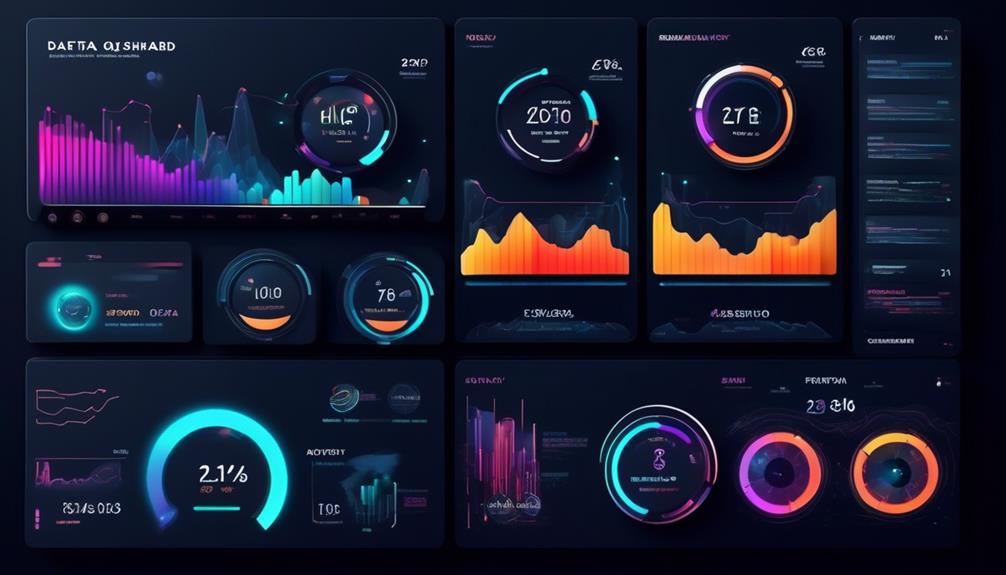
Amidst the ever-growing complexity of software systems, the crucial role of data quality in ensuring accurate and reliable information can't be overstated. As Quality Assurance (QA) continues to evolve, new tools and techniques are emerging to address the increasing importance of data quality in software development. Here are some key insights into the current trends in data quality:
- Assessment and Maintenance: Data quality involves the ongoing assessment and maintenance of the accuracy, completeness, consistency, and reliability of data, ensuring that it remains dependable and trustworthy.
- Techniques for Improvement: Techniques such as data profiling, cleansing, and standardization are being increasingly utilized to enhance data quality, enabling organizations to derive more accurate insights from their data.
- Implications of Poor Data Quality: Poor data quality can lead to serious issues, including incorrect analytics, flawed decision-making, and unreliable system functionality, highlighting the critical role that data quality plays in software reliability.
- Regulatory Compliance and Trustworthiness: Data quality is essential for compliance with regulatory standards and for ensuring the trustworthiness of business insights and operations, making it a cornerstone of effective Quality Assurance.
Mobile Testing

In the context of evolving software quality assurance, data quality's significance extends to the realm of mobile testing, where ensuring the reliability and security of applications across diverse devices and platforms is paramount. Mobile testing encompasses various aspects such as functionality, usability, and security, and it is crucial for delivering high-quality mobile applications. To provide a clearer picture of the current landscape of mobile testing, the following table outlines key elements and considerations in this domain:
| Mobile Testing | Key Aspects | Importance |
|---|---|---|
| Functionality Testing | Ensuring app functions well | Critical for user satisfaction and retention |
| Usability Testing | Focus on user experience | Impacts user adoption and overall app success |
| Security Testing | Ensuring data protection | Essential for safeguarding user and app data |
| Compatibility Testing | Testing across devices | Ensures app works seamlessly on various devices |
| Automation Testing Tools | Efficient testing processes | Accelerates testing and enhances test coverage |
Exploratory testing enables thorough examination of app functionalities, while automation testing tools streamline the testing phase. Security testing is critical due to the increasing number of software failures and the expansion of the Internet of Things (IoT) in mobile app development. Therefore, prioritizing mobile testing is paramount for delivering reliable and secure applications in the ever-evolving landscape of mobile technology.
Robotic Process Automation

As I explore the subtopic of Robotic Process Automation (RPA), it's clear that RPA has significant implications for Software Quality Assurance (SQA).
The automation benefits offered by RPA in SQA, such as reduced manual intervention and improved accuracy, are undeniable.
Moreover, the future development of RPA in SQA is poised to revolutionize testing processes and enhance overall software quality.
RPA in SQA
Utilizing RPA (Robotic Process Automation) in SQA (Software Quality Assurance) revolutionizes the testing process by automating repetitive tasks and enhancing test coverage and accuracy. Here are key insights into the impact of RPA in SQA:
- Automated Testing: RPA tools automate test execution, resulting in improved efficiency and faster delivery of test results.
- Test Coverage: RPA enhances test coverage by efficiently executing tests across various test environments and configurations.
- Regression Testing: RPA in SQA reduces the time and effort required for regression testing, ensuring comprehensive validation of software updates.
- Artificial Intelligence: RPA assists in identifying defects and performance issues through automated testing, leveraging AI capabilities for enhanced accuracy and precision.
The integration of RPA in SQA reflects one of the most significant emerging trends in software testing, optimizing processes and improving overall software quality.
Automation Benefits
Building on the transformative impact of RPA in SQA, the automation benefits of Robotic Process Automation significantly enhance test coverage and accuracy, streamlining repetitive tasks and boosting overall efficiency.
RPA leverages AI and machine learning to automate manual test cases, leading to improved software quality.
By automating repetitive tasks, RPA reduces the time and effort required for regression testing, allowing QA teams to focus on more complex and critical testing aspects.
Furthermore, RPA identifies defects and performance issues, contributing to the overall enhancement of software quality.
As organizations increasingly invest in RPA frameworks and tools, the latest trends in SQA embrace efficient automation to achieve higher productivity and superior testing outcomes.
The integration of RPA in SQA represents a significant leap towards optimizing testing processes and ensuring robust software quality.
Future Development
Evolving with advanced capabilities, Robotic Process Automation (RPA) is poised to revolutionize complex business processes in the near future, integrating AI and machine learning for enhanced cognitive automation and decision-making.
Expanded Capabilities: RPA will handle a broader range of tasks and processes, leading to increased adoption across industries.
User-Friendly Design: RPA systems will focus on intuitive interfaces for easy adoption and management by non-technical users.
Streamlined Operations: RPA will play a significant role in improving efficiency and reducing human error across various business functions.
Integration with AI: RPA solutions will continue to integrate with AI and machine learning to ensure continuous improvement and better decision-making.
These trends in software testing reflect RPA's essential role in the latest trends in software, developed to generate better tests, especially in areas of high risk, and ensure continuous improvement in the industry.
Security Testing

Security testing plays a crucial role in identifying vulnerabilities and ensuring data protection in software systems. As software tools and algorithms are developed at a rapid pace, security testing must keep up with the advancements to detect faults and deliver high-quality software. In today's QA environment, thorough testing is required for various devices and operating systems, especially for complex mobile and IoT devices. Security testing focuses on interoperability and uses emulators, simulators, and real devices for comprehensive testing. It involves testing under different loads and stress conditions to ensure robustness. Some of the tools commonly used in security testing include load balancers, penetration testing, and vulnerability scanners. To provide a clearer picture, below is a table depicting the key aspects of security testing.
| Aspect | Description | Importance |
|---|---|---|
| Vulnerability Scans | Identifies weaknesses in the system and potential entry points. | Critical for security |
| Load Balancers | Helps distribute traffic evenly across servers to prevent overload. | Ensures system stability |
| Interoperability | Focuses on the ability of systems to work together seamlessly. | Essential for diverse environments |
This evolution in security testing ensures that modern software systems are resilient against potential threats and vulnerabilities, ultimately enhancing overall system reliability and integrity.
Exploratory Testing

I find Exploratory Testing to be a fascinating approach that offers various benefits, such as the ability to improvise test cases and adapt to changes in the software.
This method aligns well with agile testing principles, allowing for quick feedback and uncovering defects that may be missed in scripted testing.
It's a valuable technique that leverages testers' domain knowledge and intuition to explore the software thoroughly.
Exploratory Testing Benefits
Exploratory testing offers a flexible and adaptive approach to uncover unexpected defects and areas of improvement in software, providing real-time feedback on its quality and uncovering critical issues early in the development process. Its benefits include:
- Rapid Pace: Allows for quick testing iterations, especially beneficial in agile and fast-paced development environments.
- Various Industries: Applicable across diverse industries, from finance to healthcare, due to its adaptability and effectiveness.
- Save Time: Identifies critical issues early, saving time and resources in the long run.
- Amounts of Data: Well-suited for testing scenarios involving large amounts of data, where scripted testing may fall short.
Incorporating exploratory testing benefits into testing strategies can lead to significant improvements in software quality and is set to be a prominent trend in the next few years.
Test Case Improvisation
Amid the dynamic landscape of software testing, test case improvisation, an integral aspect of exploratory testing, plays a pivotal role in uncovering real-time defects and driving continuous software improvement. This approach allows testers to adapt to evolving software requirements, encouraging creativity and critical thinking in the testing process. Here's how test case improvisation contributes to software quality:
| Benefits of Test Case Improvisation |
|---|
| Helps detect real-time defects |
| Allows testers to optimize their testing |
| Encourages adaptability to changing scenarios |
| Drives continuous improvement |
| Facilitates exploration of new features |
Test case improvisation is crucial as development continues, enabling functional testing without the constraints of pre-defined test design, thereby contributing to the overall software quality and user satisfaction.
Agile Test Approach
Continuously adapting to evolving software requirements, the Agile Test Approach, particularly Exploratory Testing, emphasizes adaptability and learning throughout the testing process. This approach aligns with emerging trends in SQA and QA, offering new opportunities for support teams in mobile apps and web development. Here's why it's gaining traction:
- Simultaneous Learning and Testing: Testers can explore the software and report findings in real-time, enhancing the overall testing process.
- Ideal for Rapidly Changing Projects: Agile Test Approach focuses on uncovering critical issues early in the development cycle, making it suitable for dynamic projects.
- Tester Intuition and Domain Knowledge: This approach leverages tester intuition and domain knowledge to discover defects, promoting creativity and critical thinking.
- Collaboration and Creativity: It encourages collaboration, creativity, and adaptability, fostering a more dynamic testing environment.
This approach also holds promise for integration with intelligence (AI) tools, further enhancing its potential impact.
Frequently Asked Questions
What Is the Future of Qa?
The future of QA is dynamic, driven by AI, ML, and agile methodologies. It emphasizes early defect detection through Shift-Left Testing and relies heavily on automation for efficiency.
As mobile and IoT applications expand, QA will focus on delivering reliable and secure software.
Embracing continuous testing in DevOps environments is crucial for faster delivery.
The evolution of QA demands adaptability and proficiency in advanced testing technologies for ensuring high-quality software.
What Is New in Quality Assurance?
In quality assurance, the latest trends focus on AI for data analysis, defect prediction, and automated testing. Shift-Left Testing emphasizes early collaboration, while Test Automation speeds up processes.
Agile and DevOps Testing integrate testing into development, improving software delivery. Performance and Security Testing ensure robust applications.
These trends reflect a shift towards proactive, collaborative, and automated approaches, aligning with the demand for faster, high-quality software.
What Is New in Software Testing in the Digital Era?
In software testing, AI and machine learning are revolutionizing defect prediction and test automation. Shift-left testing encourages a culture of quality from the start. Agile and DevOps testing facilitate continuous testing for rapid software delivery.
Emerging trends in software testing include mobile and IoT testing, performance and security testing, cloud-based testing, and test metrics and analytics. These trends reflect the digital era's demand for faster, more efficient, and higher quality software testing practices.
What's New in Software Testing?
What's new in software testing?
AI and machine learning are revolutionizing defect prediction and task automation.
Shift-Left Testing promotes early defect identification and developer involvement.
Test automation remains crucial for efficiency.
Agile and DevOps testing emphasize continuous integration and collaboration.
Mobile and IoT testing focus on thorough device and platform testing.
These trends reflect a shift toward more proactive, integrated, and efficient testing methodologies in the digital era.
Conclusion
In conclusion, the emerging trends in SQA for 2024 are revolutionizing the way we approach software testing. With the adoption of AI and machine learning, shift-left testing, and automation, we're able to identify defects earlier, improve efficiency, and deliver high-quality software at a faster pace.
The integration of Agile and DevOps methodologies, along with the focus on mobile, IoT, and security testing, ensures that we're meeting the demands of the ever-evolving technological landscape. These trends are shaping the future of software quality assurance.
At the helm of our content team is Amelia, our esteemed Editor-in-Chief. Her extensive background in technical writing is matched by her deep-seated passion for technology. Amelia has a remarkable ability to distill complex technical concepts into content that is not only clear and engaging but also easily accessible to a wide range of audiences. Her commitment to maintaining high-quality standards and her keen understanding of what our audience seeks are what make her an invaluable leader at EarnQA. Under Amelia’s stewardship, our content does more than just educate; it inspires and sets new benchmarks in the realm of QA education.
Resources and Training
Unlock Your Career Potential: How to Become a Software Quality Assurance Engineer
Learn how to become a software quality assurance engineer with our comprehensive guide! From skills to education, we've got you covered on the path to this rewarding career.

Exploring the realm of a Software Quality Assurance Engineer is akin to navigating a intricate digital terrain, where achieving success is determined by purposeful decisions and careful actions.
From mastering a programming language to honing essential soft skills, the road to becoming a QA Engineer is multifaceted and demands meticulous attention to detail.
But fear not, for we have compiled a comprehensive guide to help you navigate this terrain and emerge as a proficient and sought-after professional in the world of software quality assurance.
Key Takeaways
- Strong understanding of programming languages and software development methodologies is necessary for a Software Quality Assurance Engineer.
- Proficiency in manual and automated testing tools and frameworks is essential for effective software testing.
- Acquiring practical experience through internships and hands-on skills is crucial for excelling as a QA engineer.
- Obtaining professional certifications and building a portfolio showcasing successful testing scenarios and bug reports can enhance career prospects in software quality assurance.
Necessary Skills and Qualifications
We require a strong understanding of various programming languages, including Java, C#, Python, or others, for the role of a Software Quality Assurance Engineer.
As a Software Quality Assurance Engineer, a deep comprehension of software development and testing methodologies is essential. Proficiency in manual and automated testing tools and frameworks is a critical aspect of the role.
Additionally, a solid knowledge of the Software Development Life Cycle (SDLC) and development methodologies is imperative for success in this career. Excellent communication and collaboration skills are also necessary for effective interaction with development teams and stakeholders.
To excel in the field of Software Quality Assurance, a degree in computer science or a related field is often required. Furthermore, obtaining certifications such as Certified Software Quality Engineer (CSQE) can significantly enhance one’s credentials and career prospects.
A comprehensive understanding of automation tools and their application in the QA process is also crucial. With these qualifications and skills, a Software Quality Assurance Engineer can effectively contribute to the development of high-quality and reliable software systems.
Practical Experience and Internships

Transitioning from the necessary skills and qualifications, practical experience and internships play a pivotal role in gaining hands-on skills and applying theoretical knowledge in real-world scenarios for aspiring Software Quality Assurance Engineers.
Internships and entry-level positions offer valuable opportunities to immerse oneself in the practical aspects of software quality assurance. Through internships, individuals can gain exposure to testing processes, explore various programming languages, and understand the development process within a real-world context. These experiences provide a platform to apply theoretical knowledge to actual projects, enhancing one’s understanding of industry best practices and tools utilized in software quality assurance.
Working under the guidance of experienced professionals during internships allows individuals to learn from their expertise and gain insights into the day-to-day responsibilities of QA engineers. It’s during these internships that individuals can test their skills, gain experience in real-world testing scenarios, and acquire the necessary hands-on experience to excel as Software Quality Assurance Engineers.
Therefore, actively seeking internship opportunities and entry-level positions is crucial for those looking to transition theoretical knowledge into practical expertise within the field of software quality assurance.
Professional Certification and Portfolio

Professional certification in software quality assurance provides a tangible demonstration of expertise and proficiency in the field. It’s essential for software quality assurance engineers to obtain professional certification to validate their skills and knowledge. Seek certification in popular quality assurance methodologies such as Six Sigma or Agile to showcase a comprehensive understanding of industry best practices. Join professional organizations related to software quality assurance to stay updated with the latest trends and network with industry professionals.
Building a portfolio is also crucial when pursuing professional certification and showcasing your skills. Include examples of successful software testing scenarios and bug reports in your portfolio to highlight your technical skills and attention to detail. Additionally, showcase your projects, test plans, and quality assurance strategies to demonstrate your ability to ensure the quality of software products. By having a strong portfolio, you can effectively demonstrate your expertise and increase your chances of career advancement in the field.
Job Search and Technical Interview Preparation

As we pivot our focus to the job search and technical interview preparation, it’s crucial to research and apply to companies that prioritize software quality assurance and testing roles.
When looking for positions as software quality assurance engineers, having a computer degree and knowledge of testing tools like Selenium can be advantageous. It’s important to showcase your understanding of both manual testing and automated tests, as well as your ability to write test cases during technical interviews.
Additionally, preparing for technical interviews should involve practicing coding problems, understanding testing methodologies, and familiarizing yourself with common quality assurance tools and practices. Networking with professionals in the quality assurance and software testing field can provide valuable insights and help refine your interview preparation.
During technical interviews, demonstrating problem-solving skills, attention to detail, and the ability to work within teams can impress potential employers.
Job search and technical interview preparation require a methodical and analytical approach to ensure readiness for the demands of the software testing industry.
Essential Soft Skills
Developing essential soft skills is crucial for software quality assurance engineers to effectively collaborate with development teams and stakeholders. Spotting and documenting bugs, meeting strict deadlines, addressing software issues, and balancing multiple tasks in a fast-paced development environment are all important aspects of the job.
As quality assurance engineers, we must possess strong communication skills to interact with various teams and stakeholders. This ensures that everyone is aligned on project goals and requirements. Exceptional attention to detail is necessary for meticulously spotting and documenting bugs and issues, ensuring the delivery of high-quality products.
Additionally, patience and perseverance are essential traits for meeting strict deadlines and addressing complex problems that may arise during product development. Good problem-solving skills are crucial for effectively addressing software issues and continuously improving quality standards.
Finally, effective time management skills are vital for balancing multiple tasks and responsibilities in a fast-paced environment. This ensures that all aspects of manual and automated testing are covered thoroughly.
These essential soft skills are paramount for success in the field of software quality assurance engineering.
Frequently Asked Questions
How Long Does It Take to Become a Software Quality Assurance Engineer?
It takes time to become a software quality assurance engineer.
We need to pursue a bachelor’s degree in computer science or a related field, gain practical experience through internships or entry-level positions, and consider obtaining relevant certifications.
Continuous learning through online courses, workshops, and industry publications is essential.
Additionally, enhancing communication skills for collaboration with development teams and stakeholders is crucial.
These steps collectively contribute to the development of a well-rounded software quality assurance engineer.
How Do I Start a Career in Software Quality Assurance?
We start a career in software quality assurance by specializing in a programming language and pursuing specialized training in coding and software development.
We gain practical experience through internships or entry-level positions and continuously refine our technical skills.
We also develop strong communication skills, seek professional certifications, and stay informed about the latest trends in the industry.
Continuous learning, collaboration with development teams, and networking with industry professionals are essential for success.
What Qualification Is Needed for a QA Engineer?
To become a Software Quality Assurance Engineer, a bachelor’s degree in computer science or a related field is often preferred by employers. Practical experience through internships or entry-level positions is valuable.
Strong communication skills and the ability to work well with different groups are essential. Obtaining relevant certifications can enhance professional credibility.
Staying informed about the latest trends and advancements in software quality assurance through continuous learning and professional development is crucial.
How Do I Start Working as a QA Engineer?
We start working as a QA engineer by gaining a strong foundation in computer science and specializing in a programming language like Java, C#, or Python.
Seeking internships or entry-level positions in QA helps gain practical experience.
Developing skills in software testing and quality assurance, continuously refining technical skills, and obtaining professional certifications enhances professional credibility.
It’s essential to stay updated with the latest industry trends and best practices.
Conclusion
In conclusion, becoming a Software Quality Assurance Engineer is like building a sturdy foundation for a skyscraper. It requires a strong base of technical skills, reinforced with practical experience and professional certification.
Just like a skyscraper requires attention to detail and precision, so does the role of a QA Engineer. By continuously honing our skills and staying up to date with industry practices, we can ensure the software we test is as solid as a well-built skyscraper.
Rick, our Software Quality Assurance Writer, is the creative force behind many of our insightful articles and course materials. His unique background in software development, fused with his natural flair for writing, allows him to convey complex QA concepts in a way that is both informative and captivating. Rick is committed to keeping abreast of the latest trends and advancements in software testing, ensuring that our content remains not just relevant, but at the forefront of the field. His significant contributions are instrumental in helping us fulfill our mission to deliver premier QA education.
Resources and Training
Advantages of Studying Software Quality Assurance
Studying Software Quality Assurance is essential for understanding the process of ensuring software quality and reliability. Learn the importance and benefits of studying this subject.

In the realm of software development, emphasizing the significance of delivering a high-quality end product is frequent. Yet, what is frequently ignored is the essential role that software quality assurance plays in attaining this objective.
By studying software quality assurance, we uncover the essential methods and techniques required to identify and rectify potential issues before they impact the end-user experience. This not only saves time and resources but also establishes trust and reliability in the software development process.
But what exactly are these methods and techniques, and how do they contribute to the overall success of a software project? Let’s explore the reasons behind the growing importance of studying software quality assurance.
Key Takeaways
- Software Quality Assurance is important for mitigating errors, preventing disruptions, and building customer trust and loyalty.
- Studying Software Quality Assurance enhances software development processes and ensures meeting and exceeding industry quality standards.
- SQA techniques such as auditing, reviewing, code inspection, and simulation ensure high-quality software products.
- SQA plays a crucial role in the software industry by ensuring software products meet quality specifications, adhering to industry standards and regulations, and focusing on process improvement and defect management approaches.
Importance of Software Quality Assurance
Ensuring software quality assurance is essential for businesses to mitigate errors, prevent disruptions, and build customer trust and loyalty. By studying the subject of software quality assurance, individuals can grasp the critical importance of this discipline.
The significance of software quality assurance can’t be overstated. It saves both time and money by avoiding errors and the need for fixes, patches, and upgrades. Moreover, it prevents breakdowns and disruptions, ensuring continuous customer access. This not only boosts consumer confidence but also enhances the organization’s reputation for quality, leading to increased market share and a competitive advantage.
Furthermore, software quality assurance plays a pivotal role in ensuring security, compliance, and the protection of sensitive data. Understanding the importance of software quality assurance is fundamental for anyone wishing to excel in this field.
As we delve deeper into this article, it becomes evident that choosing to study software quality assurance is a strategic decision, considering its crucial role in modern business operations.
Benefits of Studying SQA

Studying software quality assurance provides a comprehensive understanding of the principles and methodologies essential for ensuring the reliability and effectiveness of software products and systems. By delving into this subject, we gain insights into the intricacies of software quality attributes, development processes, and quality standards. Here are the benefits of studying SQA:
Benefits of Studying SQA 1. In-depth knowledge of software testing and QA Understanding the intricacies of testing and QA processes equips us with the skills to identify and rectify software flaws effectively. 2. Ability to create a Software Quality Assurance Plan Mastery of SQA enables us to develop comprehensive plans to ensure the quality of software throughout the development lifecycle. 3. Enhancing software development processes Implementing SQA practices leads to improved development processes, resulting in higher-quality software. 4. Meeting quality standards Studying SQA equips us with the expertise to meet and exceed industry quality standards, ensuring the delivery of reliable software products. 5. Ensuring customer satisfaction Through SQA, we can ensure that software meets user expectations, ultimately enhancing customer satisfaction.
Studying SQA empowers us with the knowledge and skills to drive the development of high-quality, reliable software products while meeting industry standards and customer expectations.
SQA Plan and Techniques
Implementing a well-structured SQA plan and utilizing effective techniques is crucial for the successful alignment of software products with requirements and for ensuring the reliability and quality of the end result.
The SQA plan serves as a roadmap for the team, outlining responsibilities, work products, and review areas. It includes the purpose, reference, testing methodology, procedures, techniques, and tools to be employed throughout the software development process.
SQA techniques, such as auditing, reviewing, code inspection, design inspection, and simulation, play a vital role in ensuring the high-quality of software products. These techniques aid in identifying and addressing potential issues early in the development process, ultimately leading to a more robust end product.
Additionally, SQA activities involve creating an SQA Management Plan, setting checkpoints, and conducting formal technical reviews to maintain the quality of the project.
Adhering to industry standards such as ISO 9000, CMMI, and TMMi further guides the team in effectively managing software quality and testing processes.
Role of SQA in Software Industry

We play a pivotal role in the software industry by ensuring that software products meet quality specifications and adhere to industry standards and regulations.
As Software Quality Assurance (SQA) professionals, we work parallel to the software development life cycle, aiming to catch product shortcomings before public release.
Our role goes beyond software testing and quality control; it involves techniques such as auditing, reviewing, code inspection, and simulation.
By focusing on process improvement and defect management approaches, we ensure higher quality software products, reducing the need for constant patches and upgrades. This, in turn, increases customer satisfaction and trust.
Moreover, SQA plays a crucial role in ensuring security and data protection, adhering to industry standards and regulations for data security and privacy.
Our work contributes to the overall efficiency of software engineering processes, ultimately leading to the delivery of reliable and robust software products.
As SQA professionals, we’re at the forefront of ensuring that software products not only meet quality standards but also exceed customer expectations.
SQA Standards and Practices
SQA standards and practices ensure that software products consistently meet predefined quality specifications and adhere to industry regulations and standards. This is crucial for maintaining the integrity and reliability of software products.
The following are key aspects of SQA standards and practices:
- Verification of Procedures and Processes: SQA standards and practices verify the implementation of procedures and processes to ensure that they align with industry standards and best practices.
- Parallel Work with Software Development: SQA standards and practices work in parallel to software development throughout the life cycle, ensuring that quality is built into the product from the early stages.
- Early Detection of Product Shortcomings: SQA standards and practices aim to catch product shortcomings before public release, thereby preventing potential issues from reaching end-users.
- Distinction from Software Testing: It’s important to note that SQA standards and practices are different from software testing, as they encompass a broader scope that includes the entire software development process.
Understanding SQA standards and practices is essential for software engineers and professionals involved in Quality Assurance and Quality Control, as it directly impacts the overall quality and reliability of software products.
Frequently Asked Questions
Why Do You Want to Go Into the Field of Software Quality Assurance?
We are drawn to the field of software quality assurance because we see the impact that our work can have on ensuring the delivery of high-quality, stable, and competitive software products. Our passion lies in consistently monitoring and improving processes to reduce the need for constant patches and upgrades, enhancing customer satisfaction, minimizing risks, and validating error-free code.
We’re committed to ensuring the performance, usability, and security of software products.
Why Study Quality Assurance Is Important?
Studying quality assurance is important because it ensures higher quality software products. This helps to reduce the need for constant patches and increases customer satisfaction.
By minimizing risks and legal issues, quality assurance also improves overall efficiency and productivity in the development process. It helps to address potential objections and saves time and resources in the long run.
Our mastery of software quality assurance principles empowers us to deliver reliable and top-notch software solutions.
What Is Software Quality Assurance and Why Is It Important?
Software Quality Assurance (SQA) is the process of ensuring software meets quality standards and adheres to established procedures. It’s vital for catching product flaws before release, saving time and money, boosting customer confidence, and enhancing security.
SQA includes techniques like auditing, code inspection, and testing. By implementing SQA, we guarantee high-quality software, reducing the need for constant updates and patches while increasing customer satisfaction.
Why Is Software Assurance Important?
Why is software assurance important?
It’s vital because it ensures that our products meet high quality standards, reduces the need for constant patches, and builds trust with our customers. Without it, we’d face increased risks and potential legal issues.
Additionally, it improves efficiency and productivity in our development process. In short, software assurance is crucial for delivering reliable, top-notch products that keep our customers satisfied and our business thriving.
Conclusion
In conclusion, studying software quality assurance is crucial for ensuring top-notch software products. It equips us with the necessary skills to catch potential issues before release, minimize risks, and improve overall efficiency in the development process.
By mastering SQA, we can guarantee customer satisfaction and trust, making it an indispensable aspect of the software industry.
Trust us, studying SQA is a game-changer for a successful career in software development!
Rick, our Software Quality Assurance Writer, is the creative force behind many of our insightful articles and course materials. His unique background in software development, fused with his natural flair for writing, allows him to convey complex QA concepts in a way that is both informative and captivating. Rick is committed to keeping abreast of the latest trends and advancements in software testing, ensuring that our content remains not just relevant, but at the forefront of the field. His significant contributions are instrumental in helping us fulfill our mission to deliver premier QA education.
Resources and Training
Comprehensive QTP Training Courses – Enroll Now!

Are you interested in improving your automation testing skills? You’re in luck! H2K Infosys provides thorough QTP (Quick Test Professional) training programs designed to give you the necessary theoretical understanding and hands-on experience to succeed in this fast-evolving field.
Our online QTP training program is designed for beginners as well as experienced professionals who want to upgrade their skills. Whether you are a software tester, QA analyst, or a programmer looking to specialize in automation testing, our advanced QTP course is tailored to meet your needs.
With our best-in-class trainers and expert-led sessions, you will gain a deep understanding of QTP and learn how to use it effectively for test automation. Our comprehensive curriculum covers all the necessary topics, including QTP Testing, QTP automation training, and QTP certification, ensuring that you are well-prepared to take on real-world automation projects.
At H2K Infosys, we understand the importance of hands-on training. That’s why our QTP training includes practical assignments and real-time examples to help you apply what you have learned. You will have access to study materials, recorded sessions, and ongoing support to ensure your success.
So, why wait? Enroll in our QTP training program today and take your career to new heights! Learn QTP from industry experts and become a sought-after automation testing professional.
Key Takeaways:
- Comprehensive QTP training courses designed for both beginners and experienced professionals.
- Expert-led sessions and hands-on training to enhance your skills in QTP Testing and automation.
- Opportunity to earn QTP certification and increase your career prospects.
- Access to study materials, recorded sessions, and ongoing support for a seamless learning experience.
- Become an industry-ready automation testing expert and unlock new job opportunities.
Elevate Your Skills with Expert-Led QTP Training
If you’re looking to enhance your skills in QTP (Quick Test Professional) and excel in the field of test automation, H2K Infosys has the perfect solution for you. We offer customized online training on HP QTP/UFT with advanced concepts to provide you with the knowledge and practical experience needed to succeed.
Our expert-led course covers all the necessary topics and is designed to distinguish you in the test automation circles. By enrolling in this program, you’ll gain a deep understanding of QTP and develop the skills required to excel in QTP Testing and automation.
Our comprehensive training includes hands-on exercises, real-world examples, and practical assignments to ensure you get a hands-on experience in QTP automation testing. Through our interactive learning platform, you’ll have the opportunity to learn from industry experts and engage with fellow participants.
Learn QTP from the best and elevate your skills to the next level with our advanced QTP course.
| Key Features | Benefits |
|---|---|
| H2K Infosys expert-led training | Enhance your skills and gain a competitive edge in the market |
| Customized curriculum with advanced QTP concepts | Stay ahead of the curve and expand your knowledge |
| Hands-on training in QTP automation testing | Develop practical skills and gain real-world experience |
| Interactive learning platform with industry experts | Learn from the best and engage with professionals in the field |
| Real-world examples and practical assignments | Apply your knowledge to real projects and enhance your problem-solving abilities |
The Importance of QTP in Automation Testing
Quick Test Professional (QTP), now known as Unified Functional Testing (UFT), is a powerful functional test automation tool used in software testing projects.
QTP plays a crucial role in ensuring the quality and reliability of software applications. It allows testers to create, debug, and execute tests, providing accurate results and valuable insights for the development team.
With its highly technical nature, QTP requires problem-solving and analytical skills, making it an essential tool for automation testers. It uses VB scripting as a programming language, offering flexibility and compatibility with various technologies such as web, Java, .NET, SAP, Oracle, and more.
One of the key advantages of QTP is its support for automation frameworks, allowing testers to organize and structure their test scripts efficiently. QTP also integrates seamlessly with test management tools, enabling testers to manage their tests and track results effectively.
The modularity and reusability of QTP make it a valuable asset for automation projects. With QTP, testers can create reusable test scripts and components, saving time and effort in future projects. This not only increases productivity but also ensures consistency and accuracy in test results.
QTP is a vital tool in automation testing, empowering testers to deliver high-quality software solutions. Its extensive features, compatibility with various technologies, and support for automation frameworks make it an invaluable asset in the software testing industry.

Advantages of QTP in Automation Testing:
- Saves time and effort by providing an efficient automation platform
- Supports a wide range of technologies, making it versatile for different projects
- Enables testers to create, debug, and execute tests accurately
- Integrates with test management tools, aiding effective test organization and result tracking
- Allows for flexibility, modularity, and reusability in test script creation
Disadvantages of QTP in Automation Testing:
- Requires a learning curve and technical expertise
- Limited compatibility with certain non-standard technologies
- Reliance on VB scripting may restrict the use of other programming languages
Course Details of QTP Training
At H2K Infosys, we offer a comprehensive QTP training program designed to master basic to advanced level concepts of HP UFT (QTP). Our live facilitator-led class provides a hands-on learning experience and covers all the essential topics to make you an automation testing expert.
The course includes:
- Core automation concepts
- Programming basics
- Practical automation project planning and framework designing
- Guidelines on choosing test scripts
- Achieving maximum reusability
- HP UFT certification orientation
- Descriptive programming
- Study material
- Resume and job guidance
- Recorded sessions
- Hands-on assignments
- Practical real-time examples
In addition, the course discusses real-time project domains prevalent in various industries, providing you with practical insights and preparing you for real-world challenges. Our experienced instructors will guide you at each step of the training program, ensuring that you gain in-depth knowledge and practical skills in QTP.
Benefits of QTP Training at H2K Infosys
At H2K Infosys, we offer QTP training that comes with a plethora of benefits for aspiring automation testers. Our comprehensive program ensures that you gain a deep understanding of both the basics and advanced concepts of QTP/UFT. You will have the opportunity to gain hands-on experience in script writing, test cases, and test scripts, allowing you to master the skills required for successful automation projects.
One of the key advantages of our QTP training is the focus on modularity and reusability. We believe that these principles are essential for achieving automation project success. By learning how to create modular and reusable test scripts, you can save time and effort in your testing processes, ultimately improving efficiency and productivity.
In addition to the extensive coursework, we provide study material, resume and job guidance, and recorded sessions for easy reviewing. Our study material is designed to complement your learning journey and reinforce important concepts. With our resume and job guidance, you will receive expert advice on crafting a standout resume and preparing for QTP/UFT job interviews.
Upon completing our QTP training and obtaining QTP certification, you will be equipped with the skills and knowledge to excel in the field of automation testing. QTP certification serves as a testament to your expertise and can significantly enhance your career prospects. With an industry-recognized certification under your belt, you can increase your earning potential and open doors to exciting job opportunities.
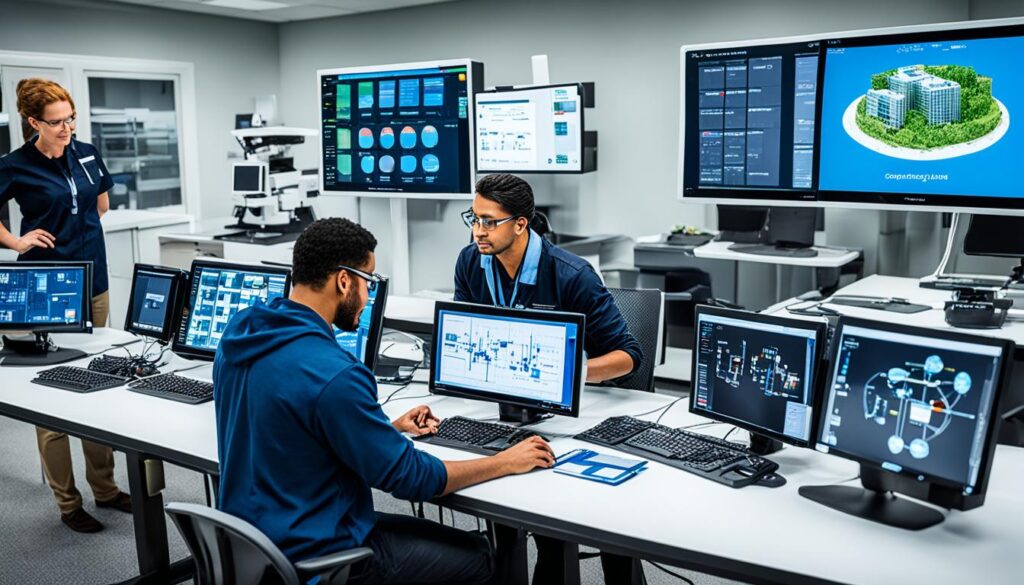
Testimonial from a Satisfied Participant:
“The QTP training at H2K Infosys exceeded my expectations. The course content was comprehensive, and the instructors were knowledgeable and supportive. The hands-on experience allowed me to apply the concepts I learned and gain confidence in my automation testing skills. I highly recommend H2K Infosys to anyone looking to enhance their QTP/UFT proficiency.”
| Benefits of QTP Training at H2K Infosys |
|---|
| Gain a deep understanding of QTP/UFT |
| Hands-on experience in script writing, test cases, and test scripts |
| Learn how to achieve automation project success through modularity and reusability |
| Access to study material, resume and job guidance, and recorded sessions |
| Increase your earning potential and become an industry-ready automation testing expert |
Assistance with QTP Job Interviews
At H2K Infosys, we understand the importance of excelling in QTP job interviews to secure your dream job in the field of automation testing. Our expert educators are here to assist you every step of the way.
We provide comprehensive guidance on how to showcase your testing skills and become industry-ready. Our instructors will help you prepare for QTP/UFT job interviews by providing valuable tips, insights on industry trends, and real-life scenarios to enhance your problem-solving abilities.
Key Skills for a Standout Resume
A well-crafted QTP/UFT programmer resume is crucial to catch the attention of potential employers. Our experienced educators will guide you on how to highlight key skills, including:
- Proficiency in using QTP/UFT for automation testing
- Strong knowledge of VB scripting
- Experience in working with different automation frameworks
- Understanding of testing methodologies and practices
By showcasing these skills on your resume, you will stand out from the competition and increase your chances of securing a QTP/UFT job.
Impress Interviewers with Confidence
Our instructors will provide you with strategies to impress interviewers with confidence and professionalism. We will share QTP interview questions commonly asked by hiring managers, helping you prepare effective responses and gain a deeper understanding of the concepts.
“Having a thorough understanding of QTP/UFT and being able to confidently articulate your knowledge during interviews can significantly increase your chances of landing a rewarding job in automation testing.” – H2K Infosys
Please note that while we strive to make you industry-ready, H2K Infosys is not a placement agency, and therefore, cannot guarantee job placements. However, with our comprehensive QTP training and guidance, you will have the skills and confidence necessary to excel in QTP/UFT job interviews and secure your desired position.
Secrets to Consider Before Starting Online QTP Training
Before embarking on your online QTP training journey, there are a few secrets that can significantly benefit your career. With the software testing market experiencing rapid growth, the demand for automation testers is on the rise. In order to make yourself stand out in this competitive field, obtaining QTP certification is crucial. It not only enhances your earning potential but also opens up a wide range of job opportunities. By enrolling in the comprehensive QTP training program at H2K Infosys, you will gain a solid understanding of automation testing concepts and advanced script writing skills, making you a highly valuable asset in the industry.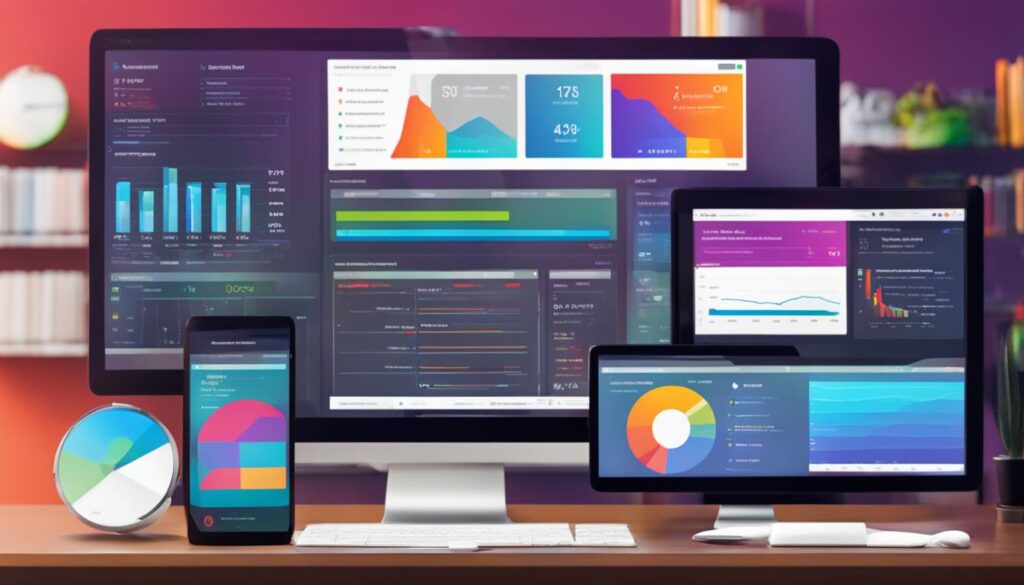
As seen in the table below, the QTP training program at H2K Infosys offers the perfect blend of theoretical knowledge and practical experience, ensuring that you are fully equipped to excel in the field of automation testing:
| Course Highlights | Details |
|---|---|
| Comprehensive Curriculum | The course covers all the necessary topics, including core automation concepts, programming basics, practical automation project planning and framework designing, and more. |
| Hands-on Training | Participants will have the opportunity to work on real-time projects and gain practical experience in QTP automation testing. |
| HP UFT Certification Orientation | Guidance and preparation materials will be provided to help participants successfully navigate the HP UFT certification process. |
| Resume and Job Guidance | Expert assistance will be offered to optimize your resume and provide valuable insights on job search strategies. |
| Recorded Sessions | Participants will have access to recorded training sessions for easy review and revision. |
| Real-time Examples and Assignments | Practical assignments and real-world examples will be provided to reinforce learning and enhance practical skills. |
By considering these secrets and enrolling in the online QTP training program at H2K Infosys, you can take the first step towards a successful career in automation testing. Embrace the opportunity to enhance your skills, increase your earning potential, and unlock a world of exciting job prospects. Enroll today and let us guide you towards becoming an industry-ready automation testing expert!
Benefits of Getting QTP Certified
Becoming QTP certified offers a multitude of advantages for individuals seeking to excel in the field of automation testing. At H2K Infosys, our comprehensive QTP training program equips you with the necessary skills to thrive in this competitive industry.
- Gain Hands-on expertise: Our training program provides you with practical experience in using QTP/UFT and other automation testing tools. You’ll develop proficiency in advanced script writing and test case concepts, allowing you to tackle real-world testing challenges with confidence.
- Enhance Testing Skills: By obtaining QTP certification, you demonstrate a comprehensive understanding of automation testing principles and best practices. You’ll acquire a deeper knowledge of testing methodologies, frameworks, and techniques, enabling you to deliver high-quality software solutions.
- Increase Earning Potential: A QTP certification can significantly boost your earning potential. As a certified automation testing professional, you’ll be positioned for higher-paying job opportunities that recognize your expertise and value in test automation.
- Expand Career Opportunities: QTP certification opens doors to a diverse range of career opportunities in the automation testing industry. With this widely recognized credential, you’ll be sought after by employers looking for skilled professionals who can streamline their testing processes and ensure the delivery of high-quality software products.
Our QTP Training – Launch Your Automation Testing Career Today!
At H2K Infosys, we provide comprehensive QTP training that encompasses all aspects of automation testing. Our expert instructors guide you through hands-on exercises, real-time projects, and interactive sessions to ensure you gain the practical skills and knowledge required for a successful career in automation testing.
Take the first step toward becoming a certified QTP professional by enrolling in our training program. Join us and unlock new horizons in automation testing.
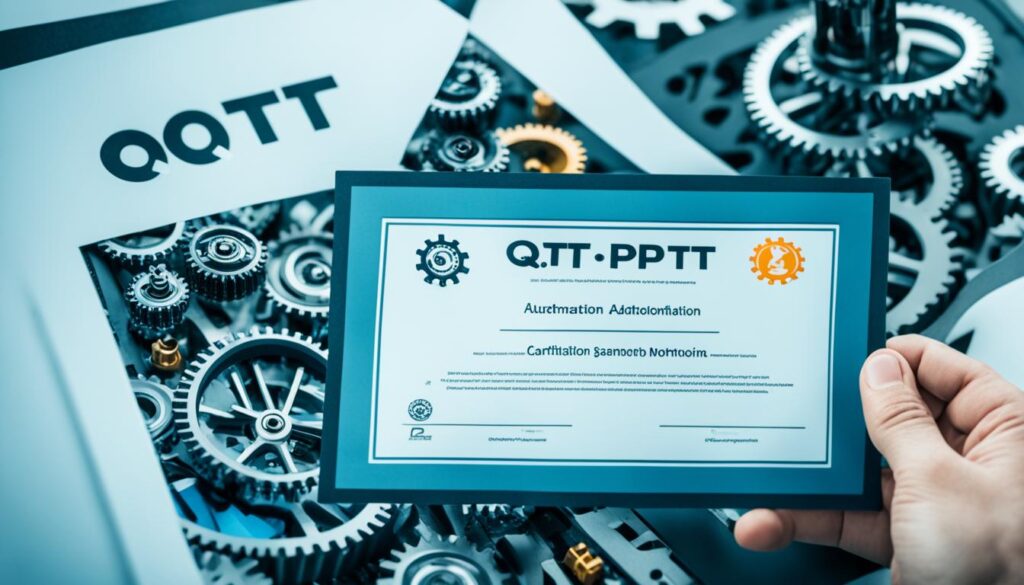
Reviews from Satisfied QTP Training Participants
At H2K Infosys, we take pride in the positive reviews received from participants who have enrolled in our QTP training program. Our commitment to providing comprehensive and effective training has been highly appreciated by our satisfied participants.
“The QTP training at H2K Infosys exceeded my expectations. The instructors possess excellent knowledge and teaching abilities, making the sessions interactive and informative. The support provided in clearing doubts and gaining practical experience was exceptional.”
“I am extremely satisfied with the QTP training program at H2K Infosys. The course has equipped me with in-depth knowledge and practical skills that have prepared me well for QTP/UFT job opportunities. I highly recommend this training to anyone looking to excel in automation testing.”
These reviews highlight the effectiveness of our QTP training program in developing skills and preparing participants for QTP/UFT job opportunities. Our instructors’ expertise, interactive sessions, and dedicated support have helped participants enhance their automation testing abilities and excel in their careers.
Our interactive and informative QTP training program receives consistent positive feedback, inspiring us to continue delivering high-quality training that meets the needs of our participants.
| Benefits of QTP Training at H2K Infosys |
|---|
| Expert instructors with excellent knowledge and teaching abilities |
| Interactive and informative sessions |
| Dedicated support in clearing doubts and gaining practical experience |
| Preparation for QTP/UFT job opportunities |
Join our QTP training program at H2K Infosys and experience the benefits that have left our participants highly satisfied. Enhance your automation testing skills and prepare yourself for a successful career in QTP/UFT.
How H2K Infosys Assists with QTP/UFT Job Placements
At H2K Infosys, our goal is to make you industry-ready and equip you with the necessary skills for QTP/UFT job placements. Our comprehensive training program focuses on practical learning and real-time projects in various domains such as banking/financial, telecom, supply chain management, CRM, and healthcare. We provide guidance on resume preparation, job interviews, and showcasing your testing skills to help you stand out in the competitive job market.
While we are dedicated to your success, it’s important to note that we do not guarantee job placements as we are not a placement agency. However, through our training and support, we strive to enhance your employability and increase your chances of securing QTP/UFT job opportunities.
The Future of QTP/UFT Job Market
The future of the QTP/UFT job market looks promising. With the global software testing market expected to reach $50 billion in the next two years, there is a high demand for expert QA analysts. Automation testers with QTP/UFT skills have the opportunity to earn competitive salaries, with an average of $76K in the USA.
The demand for automation testing experts has increased by 200% since 2018, indicating a growing need for professionals with QTP/UFT knowledge and expertise. As businesses increasingly rely on software testing to ensure the quality of their products, the demand for skilled automation testers is expected to continue rising.
With the advanced QTP course offered by H2K Infosys, you can elevate your skills and position yourself for success in the evolving job market. Take advantage of this opportunity to gain the necessary expertise in QTP/UFT and secure lucrative job opportunities in the field of automation testing.
Essential Skills for a QTP/UFT Programmer Resume
Building an impressive QTP/UFT programmer resume requires highlighting essential skills and experience. A QTP/UFT resume should showcase expertise in testing, automation testing tools, and proficiency in VB scripting. It is important to emphasize relevant projects, certifications, and the ability to work with different automation frameworks. By showcasing these skills on your resume, you can increase your chances of getting hired for QTP/UFT job positions.
Skills to include on your QTP/UFT programmer resume:
- Expertise in software testing methodologies and techniques.
- Proficiency in QTP/UFT automation testing tools.
- Strong programming skills in VB scripting.
- Experience in designing and executing test cases and test scripts.
- Ability to identify and report software defects.
- Knowledge of different automation frameworks, such as data-driven and keyword-driven frameworks.
- Understanding of software development life cycle (SDLC) and agile methodologies.
- Excellent problem-solving and analytical skills.
Additionally, it is beneficial to highlight any relevant projects you have worked on during your QTP/UFT training or previous experiences. Mention the industry domains you have worked in, such as banking/finance, healthcare, e-commerce, or telecommunications. Include any certifications you have obtained, such as QTP/UFT certification or any other relevant software testing certifications.
“Having hands-on experience with different automation frameworks and showcasing your ability to work with various tools and technologies will make your resume stand out in the competitive QTP/UFT job market.”
Remember to tailor your resume to match the specific requirements of the QTP/UFT job you are applying for. Highlight the skills and experiences that are most relevant to the job listing, and quantify your achievements wherever possible. A well-crafted QTP/UFT resume will not only demonstrate your technical skills but also effectively communicate your value as a QTP/UFT programmer.
Conclusion
In conclusion, QTP Training at H2K Infosys is the perfect opportunity to enhance your skills in automation testing and advance your career prospects in the field. Our comprehensive training program covers all essential topics, ensuring that participants gain the necessary knowledge and hands-on experience to excel as automation testing experts.
By enrolling in our QTP Training, you will not only learn the fundamentals but also delve into advanced concepts, equipping you with a deep understanding of QTP/UFT. Our expert instructors will guide you through practical exercises, enabling you to develop the skills required to succeed in real-world test automation projects.
Upon completion of our QTP Training and obtaining the QTP certification, you will have a competitive edge in the job market. You will be well-prepared to showcase your expertise in automation testing and secure lucrative job opportunities in esteemed organizations.
Don’t miss out on this valuable learning opportunity. Enroll in our QTP Training program today and take your career to new heights in the exciting field of automation testing.
FAQ
What is QTP/UFT?
QTP (Quick Test Professional), now known as UFT (Unified Functional Testing), is a functional test automation tool used in software testing projects. It is highly technical and requires problem-solving and analytical skills. QTP uses VB scripting as a programming language and supports various technologies such as web, Java, .NET, SAP, Oracle, and more. It is a powerful tool that enables testers to create, debug, and execute tests, integrate with test management tools, and support various automation frameworks.
What does the QTP training program at H2K Infosys offer?
The QTP training program offered by H2K Infosys is a live facilitator-led class focused on mastering basic to advanced level concepts of HP UFT (QTP). The course covers core automation concepts, programming basics, practical automation project planning and framework designing, guidelines on choosing test scripts, achieving maximum reusability, HP UFT certification orientation, descriptive programming, study material, resume and job guidance, recorded sessions, hands-on assignments, and practical real-time examples. The course also discusses real-time project domains in various industries.
What are the advantages of QTP training at H2K Infosys?
The QTP training at H2K Infosys offers several advantages. You will learn the basics and advanced concepts of QTP/UFT, gain hands-on experience in script writing, test cases, and test scripts, and understand how to achieve automation project success through modularity and reusability. The course provides study material, resume and job guidance, and recorded sessions for easy reviewing. By completing the training and obtaining QTP certification, you will enhance your skills, increase your earning potential, and become an industry-ready automation testing expert.
Does H2K Infosys provide assistance with QTP job interviews?
Yes, H2K Infosys provides assistance with QTP job interviews. The expert educators offer guidance on how to showcase your testing skills and become industry-ready. They will help you prepare for QTP/UFT job interviews, understand the key skills required for a QTP/UFT programmer resume, and provide tips to impress interviewers. While H2K Infosys aims to make you industry-ready, they cannot guarantee job placements as they are not a placement agency.
How can QTP training benefit my career?
Before starting online QTP training, it is important to consider some secrets that can benefit your career. The software testing market is growing rapidly, with automation testers in high demand. Obtaining QTP certification can increase your earning potential and open up more job opportunities. The training program at H2K Infosys will provide you with a solid understanding of automation testing concepts and advanced script writing skills, making you a valuable asset in the industry.
What are the benefits of getting QTP certified?
Getting QTP certified offers numerous benefits. The training program at H2K Infosys will equip you with the necessary skills to excel in automation testing. You will gain hands-on expertise in QTP/UFT and other automation testing tools, learn advanced script writing and test case concepts, and enhance your overall testing skills. By becoming QTP certified, you will increase your earning potential and gain more opportunities for career growth in the field of automation testing.
What do participants say about H2K Infosys’ QTP training program?
H2K Infosys has received positive reviews from participants who have enrolled in their QTP training program. Participants have praised the knowledge and teaching abilities of the instructors, the interactive and informative sessions, and the support provided in clearing doubts and gaining practical experience. The reviews highlight the effectiveness of the training program in developing skills and preparing participants for QTP/UFT job opportunities.
Does H2K Infosys provide job placements after QTP training?
H2K Infosys aims to make participants industry-ready and equip them with the necessary skills for QTP/UFT job placements. The training program focuses on practical learning and real-time projects in various domains such as banking/financial, telecom, supply chain management, CRM, and healthcare. While H2K Infosys provides guidance on resume preparation, job interviews, and showcasing testing skills, they do not guarantee job placements as they are not a placement agency.
What is the future of the QTP/UFT job market?
The future of the QTP/UFT job market looks promising. The global software testing market is expected to reach $50 billion in the next two years, with a high demand for expert QA analysts. Automation testers with QTP/UFT skills can earn competitive salaries, with an average of $76K in the USA. The demand for automation testing experts has increased by 200% since 2018, indicating a growing need for professionals with QTP/UFT knowledge and expertise.
What essential skills should a QTP/UFT programmer resume showcase?
Building an impressive QTP/UFT programmer resume requires highlighting essential skills and experience. A QTP/UFT resume should showcase expertise in testing, automation testing tools, and proficiency in VB scripting. It is important to emphasize relevant projects, certifications, and the ability to work with different automation frameworks. By showcasing these skills on your resume, you can increase your chances of getting hired for QTP/UFT job positions.
At the helm of our content team is Amelia, our esteemed Editor-in-Chief. Her extensive background in technical writing is matched by her deep-seated passion for technology. Amelia has a remarkable ability to distill complex technical concepts into content that is not only clear and engaging but also easily accessible to a wide range of audiences. Her commitment to maintaining high-quality standards and her keen understanding of what our audience seeks are what make her an invaluable leader at EarnQA. Under Amelia’s stewardship, our content does more than just educate; it inspires and sets new benchmarks in the realm of QA education.
-

 Resources and Training1 day ago
Resources and Training1 day agoMaster Selenium Webdriver Training Today!
-

 SQA Techniques and Tools3 months ago
SQA Techniques and Tools3 months agoUnveiling the Role of Software Quality Assurance: What Do They Really Do?
-

 SQA Techniques and Tools3 months ago
SQA Techniques and Tools3 months agoUnlock Your Potential: How to Become a Quality Assurance Software Tester and Earn a Competitive Salary
-

 SQA Best Practices1 week ago
SQA Best Practices1 week agoElevate Your Tech with Software Quality Assurance
-

 Fundamentals of SQA1 week ago
Fundamentals of SQA1 week agoUnderstanding Definition and Scope of Software Quality Assurance (SQA)
-

 SQA Techniques and Tools1 week ago
SQA Techniques and Tools1 week agoExpert Usability Testing Strategies Revealed
-

 SQA Best Practices1 week ago
SQA Best Practices1 week agoTop SQA Best Practices for Quality Assurance
-

 Fundamentals of SQA1 week ago
Fundamentals of SQA1 week agoHow Do You Structure a Quality Assurance Team?




